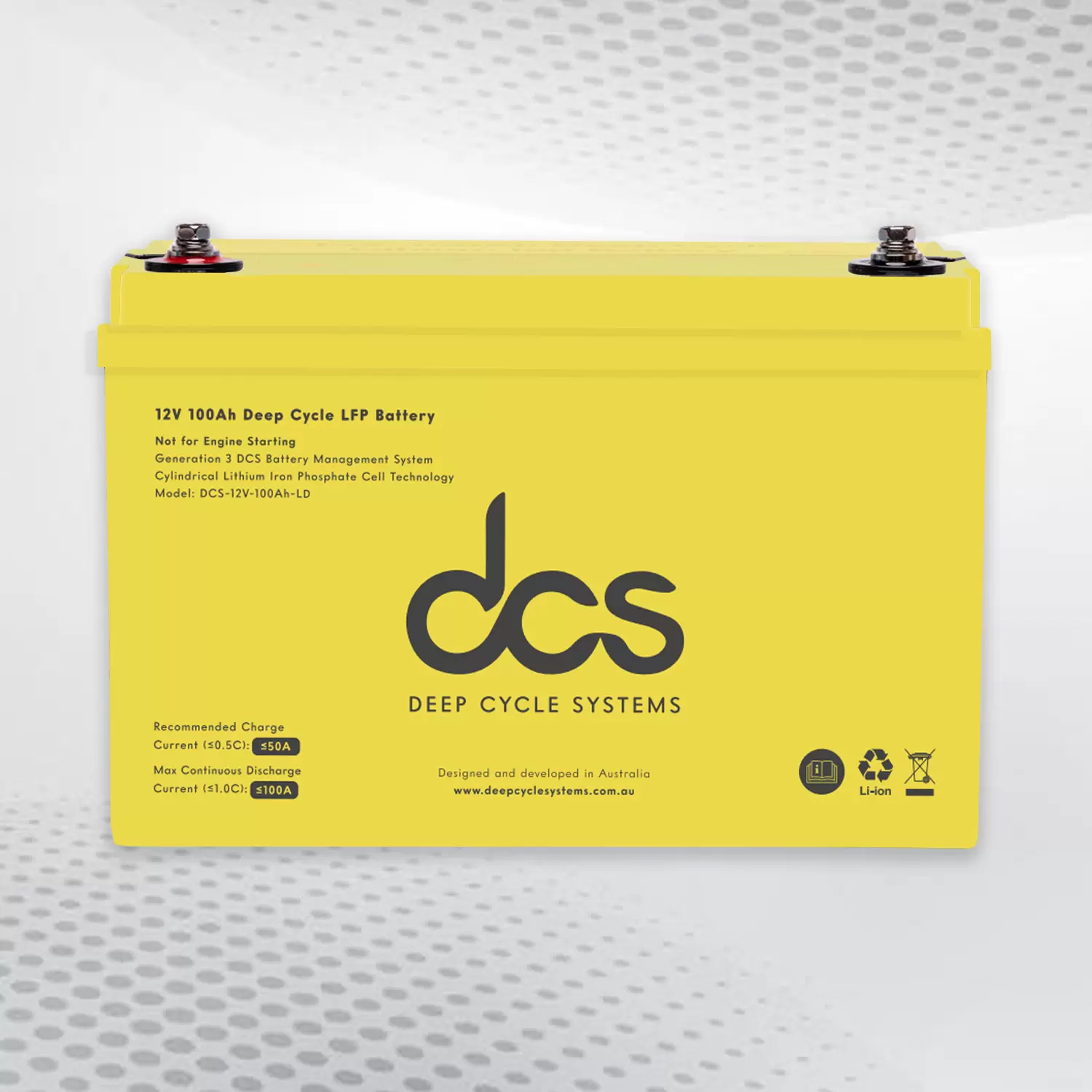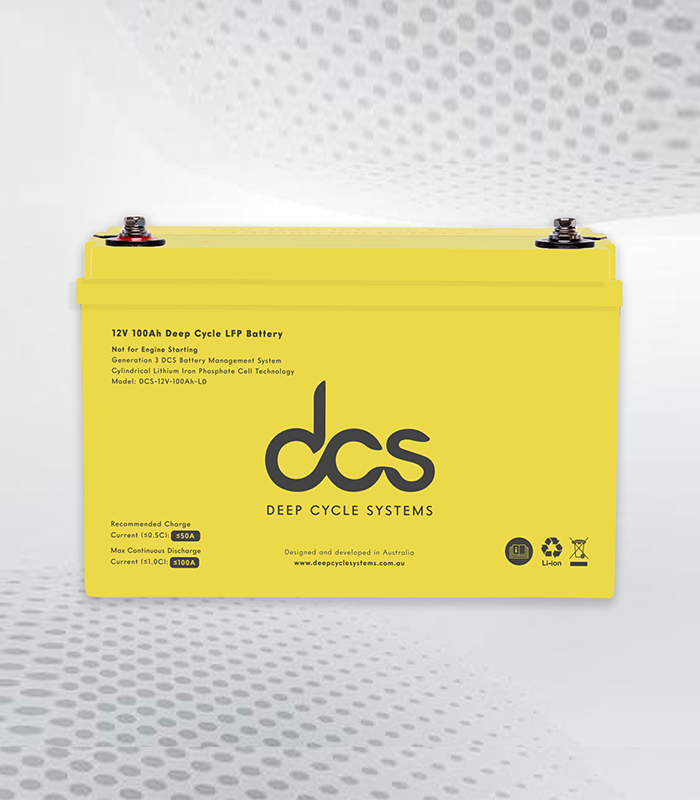Regarding efficient energy storage, Li-ion 12V 100Ah batteries have emerged as a key player. These batteries offer a powerful combination of high energy density, long lifespan, and lightweight design, making them a popular choice for various applications. This blog post will delve into the anatomy, benefits, installation tips, and environmental impact Li ion 12v 100ah and explore future trends in battery technology.
Anatomy of A 12 V 100Ah Lithium Ion Battery
A 12V 100Ah lithium-ion battery comprises a series of lithium-ion cells configured in parallel, culminating in a total voltage of 12 volts. These cells are encased within a robust casing, safeguarding them from external factors and facilitating secure operation. Integral to the battery’s functionality is the inclusion of a Battery Management System (BMS).
This sophisticated system is crucial in the battery’s charging and discharging processes, ensuring the cells operate within their optimal parameters. This meticulous arrangement ensures that the battery provides a stable and reliable power source and maintains its integrity and longevity through various cycles of use.
Design and Structure of A 12V 100Ah Battery
The architecture of a 12V 100Ah lithium-ion battery is meticulously crafted to balance compactness with power. This battery type boasts a streamlined, lightweight form, simplifying installation across various settings. It typically features terminals that facilitate straightforward connection to power sources and devices, ensuring compatibility and ease of use. Inside, the battery houses electrodes composed of lithium, and a specialised separator is employed to avert potential short circuits.
This strategic internal configuration is pivotal in safeguarding against electrical mishaps and optimising the battery’s performance and durability. Such design considerations focus on efficiency and user convenience, symbolising the innovative spirit driving advancements in lithium-ion battery technology.
Key Features of the Li-Ion 12V 100Ah Battery
Li-ion 12V 100Ah batteries stand out due to their exceptional energy density, allowing them to store significant amounts of energy within a compact, lightweight framework. This characteristic makes them particularly advantageous for applications where space and weight conservation are critical. Additionally, these batteries are distinguished by their longevity, which makes them capable of enduring numerous charge cycles with minimal degradation.
A notable attribute is their low self-discharge rate, which ensures that the battery maintains its charge over extended periods of non-use, thus remaining ready for operation whenever required. The combination of these features positions Li-ion 12V 100Ah batteries as a superior choice for diverse energy storage needs, underpinning their growing popularity in the market.
 Benefits of using 12v 100ah lithium ion
Benefits of using 12v 100ah lithium ion
12 v 100ah lithium ion offer many advantages for a diverse range of applications. Notably, their high energy density enables them to store substantial amounts of power within a relatively small footprint, making them ideal for scenarios where space-saving and weight reduction are paramount.
Furthermore, 12v 100ah lithium ion is renowned for their rapid charging capabilities, ensuring a swift replenishment of energy and enhancing operational efficiency. Another significant advantage lies in their robust longevity; these batteries are engineered to withstand numerous charging cycles with minimal loss in capacity.
This aspect, coupled with a low self-discharge rate, guarantees that the batteries retain their charge for extended periods when not actively used, thereby standing ready to deliver power on demand. Additionally, the high-efficiency levels and reduced maintenance demands of Li-ion 12V 100Ah batteries underscore their cost-effectiveness over time, presenting a viable and sustainable option for energy storage across various domains.
Potential Applications for 12V 100Ah Li-Ion Batteries
The versatility of 12V 100Ah Li-ion batteries extends to various applications across different sectors, marking their significance in modern power solutions. In renewable energy, these batteries are crucial components in solar panel systems, storing energy harnessed during the day for use at night or during low-light conditions.
The automotive industry benefits greatly from their application in electric vehicles, where their high energy density and lightweight nature contribute to enhanced performance and range. Recreational vehicles and marine crafts also rely on these batteries for reliable and efficient power, given their ability to withstand numerous charging cycles and low maintenance requirements.
Additionally, these batteries provide backup power solutions for critical infrastructure and homes, ensuring continuity of operations and safety during power outages. The broad applicability of 12V 100Ah Li-ion batteries underscores their role in driving forward energy-efficient technologies across various fields.
Installation Tips for 12V 100Ah Li-Ion Batteries
Properly installing 12V 100Ah Li-ion batteries maximises their performance and lifespan. The following subheadings concisely guide:
Choosing the Right Location
The installation site should be cool, dry, and well-ventilated to prevent overheating and ensure optimal operating conditions.
Securing the Battery
Ensure the battery is firmly mounted to prevent movement that could lead to physical damage or disconnections, especially in mobile applications like vehicles or boats.
Electrical Connections
Making secure and clean electrical connections is essential. Using the correct cable size and terminals can reduce the risk of poor connectivity or power loss.
Orientation Matters
While Li-ion batteries are versatile, confirming the manufacturer’s recommendations on orientation can prevent potential issues. Some batteries are designed to operate in specific positions.
Temperature Considerations
Avoid exposing the battery to extreme temperatures. A temperature management system can prolong battery life in environments with significant temperature fluctuations.
Maintaining Your 12V 100Ah Li-Ion Battery
A regular maintenance schedule is crucial for optimal performance and longevity of a 12V 100Ah Li-ion battery. This involves monitoring the charge level to prevent the battery from becoming overly depleted or charged. Terminals require periodic cleaning to ensure a good connection and prevent corrosion. Inspecting the battery for any wear or damage can prevent failure and safeguard against potential hazards.
Additionally, storing the battery in a cool, dry environment when it is not in use helps preserve its health and efficacy. Adherence to these maintenance practices extends the battery’s life and enhances its reliability and performance in various applications.
Safety Measures When Handling Li-Ion Batteries
Adopting appropriate safety measures is imperative when dealing with Li-ion 12V 100Ah batteries to avert accidents and ensure secure operation. Individuals should wear protective equipment, such as gloves and goggles, to shield themselves against potential chemical spills or electrical shocks. Overcharging or over-discharging the battery must be diligently avoided as it can lead to overheating or even catastrophic failure.
Adherence to the manufacturer’s installation, use, and maintenance guidelines is crucial for preventing mishaps. It is also recommended that Li-ion batteries be stored in a fire-resistant container when not actively in use, to mitigate any fire risk.
These precautions are fundamental in maintaining a safe environment when handling or using Li-ion batteries in any application. Beyond these safety measures, it’s essential to understand your battery’s discharge rates and capacities to prolong its lifespan and efficiency. Always regularly inspect your batteries for any visible damage or irregularities, to ensure optimal functioning.
Comparing Li Battery lithium ion 12v 100ah With Other Battery Types
Several distinctions become apparent when contrasting Battery lithium ion 12v 100ah with alternative battery technologies, such as lead-acid and nickel-cadmium. These lithium-ion batteries boast a superior energy density, which translates to a more compact and efficient energy storage solution.
Unlike lead-acid batteries, which are heavier and have a shorter service life, Li-ion 12V 100Ah batteries offer a remarkable blend of longevity and reliability, enduring numerous charge-discharge cycles with minimal capacity loss.
Additionally, the environmental aspect of Li-ion batteries is noteworthy; they do not incorporate harmful heavy metals like lead or cadmium, aligning with a more sustainable approach to energy storage. These attributes underscore the growing preference for Li-ion 12V 100Ah batteries in diverse applications, reflecting their efficiency and eco-friendliness compared to traditional battery counterparts.
Environmental Impact of Li-Ion Batteries
Li-ion 12V 100Ah batteries are more eco-friendly than traditional battery technologies, notably for their absence of hazardous heavy metals such as lead or cadmium. This characteristic significantly reduces the potential for soil and water contamination upon disposal.
However, the environmental footprint of these batteries extends beyond their composition. The extraction of lithium and other raw materials necessary for their production involves significant energy consumption and can lead to ecological disruption. Furthermore, the end-of-life disposal process of Li-ion batteries poses challenges.
Whilst these batteries are recyclable, recycling is complex and requires specialised facilities to recover valuable materials effectively. Proper recycling is crucial to mitigating the environmental impact, highlighting the importance of responsible end-of-life management practices for Li-ion batteries to ensure their benefits are fully realised in an environmentally sustainable manner.
Future Trends in Li-Ion Battery Technology
The trajectory of Li-ion battery technology is directed towards enhancing efficiency, capacity, and safety. Researchers are pioneering the development of solid-state electrolytes, which promise to offer higher energy densities and significantly reduce the risk of leakage and fires associated with current liquid electrolytes.
This shift could dramatically improve both the safety and performance of Li-ion batteries. Additionally, the exploration of silicon anodes represents a significant advancement over traditional graphite anodes, potentially tripling the capacity of batteries while reducing the charging time.
Innovations in battery management systems are also on the horizon, with smarter, more adaptive technologies that can more accurately predict battery life and optimise charging cycles. These advancements are expected to contribute to the extended lifespan and overall efficiency of Li-ion 12V 100Ah batteries.
FAQs
How Durable Is A Li-Ion 12V 100Ah Battery?
A Li-ion 12V 100Ah battery typically lasts several years, contingent upon usage and adherence to recommended maintenance procedures. Regular care can significantly extend its service life.
Can Battery lithium ion 12v 100ah Be Employed for Solar Energy Storage?
Battery lithium ion 12v 100ah is ideal for storing solar energy due to their high energy density and capacity for numerous charge cycles, making them perfect for solar panel systems.
What Safety Precautions Should Be Observed When Handling Li-Ion Batteries?
When dealing with Li-ion batteries, it is paramount to wear protective gear, avoid overcharging or over-discharging, and adhere to the manufacturer’s guidelines to mitigate the risks of accidents.
Are Li-Ion Batteries Recyclable?
Yes, Li-ion batteries can be recycled. However, the intricate process necessitates specialised facilities to recover valuable materials and minimise environmental impact efficiently.
What Is The Correct Method For Disposing Of A Li-Ion Battery?
Proper disposal involves taking the battery to a designated recycling centre that can handle Li-ion batteries, ensuring safe and environmentally responsible recycling practices are followed.
Conclusion
In summary, Li-ion 12V 100Ah batteries have positioned themselves as indispensable assets in energy storage, known for their superior energy density, durability, and streamlined design. Their applicability spans many sectors, including but not limited to, renewable energy solutions and electric mobility. Adherence to recommended installation procedures, maintenance schedules, and safety protocols can significantly enhance their utility and longevity. As technology progresses, these batteries stand on the cusp of further evolution, promising efficiency and environmental sustainability enhancements.
This Article Was First Published On
Is Li ion 12v 100ah The Key to Efficient Energy Storage?
| Related Business Listings |
| Contact Directory |
| Local Business Profiles |



